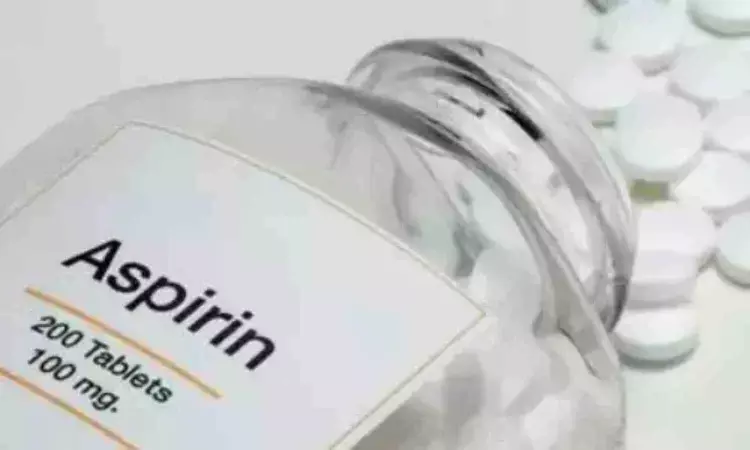- Home
- Medical news & Guidelines
- Anesthesiology
- Cardiology and CTVS
- Critical Care
- Dentistry
- Dermatology
- Diabetes and Endocrinology
- ENT
- Gastroenterology
- Medicine
- Nephrology
- Neurology
- Obstretics-Gynaecology
- Oncology
- Ophthalmology
- Orthopaedics
- Pediatrics-Neonatology
- Psychiatry
- Pulmonology
- Radiology
- Surgery
- Urology
- Laboratory Medicine
- Diet
- Nursing
- Paramedical
- Physiotherapy
- Health news
- Fact Check
- Bone Health Fact Check
- Brain Health Fact Check
- Cancer Related Fact Check
- Child Care Fact Check
- Dental and oral health fact check
- Diabetes and metabolic health fact check
- Diet and Nutrition Fact Check
- Eye and ENT Care Fact Check
- Fitness fact check
- Gut health fact check
- Heart health fact check
- Kidney health fact check
- Medical education fact check
- Men's health fact check
- Respiratory fact check
- Skin and hair care fact check
- Vaccine and Immunization fact check
- Women's health fact check
- AYUSH
- State News
- Andaman and Nicobar Islands
- Andhra Pradesh
- Arunachal Pradesh
- Assam
- Bihar
- Chandigarh
- Chattisgarh
- Dadra and Nagar Haveli
- Daman and Diu
- Delhi
- Goa
- Gujarat
- Haryana
- Himachal Pradesh
- Jammu & Kashmir
- Jharkhand
- Karnataka
- Kerala
- Ladakh
- Lakshadweep
- Madhya Pradesh
- Maharashtra
- Manipur
- Meghalaya
- Mizoram
- Nagaland
- Odisha
- Puducherry
- Punjab
- Rajasthan
- Sikkim
- Tamil Nadu
- Telangana
- Tripura
- Uttar Pradesh
- Uttrakhand
- West Bengal
- Medical Education
- Industry
Aspirin therapy proved ineffective in treating chronic rhinosinusitis with nasal polyps: Study

A randomised placebo-controlled Finnish study showed that aspirin therapy does not provide significant relief for people suffering from chronic rhinosinusitis with nasal polyps who are hypersensitive to non-steroidal anti-inflammatory drugs (NSAIDs). The results of a joint study performed by the University of Eastern Finland, University of Helsinki and HUS Inflammation Center were published in the Allergy journal.
Non-steroidal anti-inflammatory drug-exacerbated respiratory disease (N-ERD) typically involves hypersensitivity to anti-inflammatory drugs, asthma, and chronic rhinosinusitis with nasal polyps (CRSwNP). Nasal polyps are caused by excess growth of the nasal mucous membranes. Hospitals have been treating this disorder with long-term aspirin (ASA) therapy for approximately 15 years.
“ASA therapy is affordable, but there hasn’t been sufficient evidence of its effectiveness. Obtaining information on the effectiveness of treatment is important because several biologic medications currently available to treat the symptoms are effective but also very expensive,” says Professor Sanna Toppila-Salmi from the University of Eastern Finland, who led the study.
The study involved administering aspirin desensitization therapy to 26 patients with N-ERD, asthma and severe CRSwNP and then randomising them into groups taking either aspirin or a placebo orally for 11 months.
“No differences in symptoms or lung function was found between the aspirin and placebo groups at the end of therapy. There were signs that ASA therapy could slightly reduce nasal polyps and improve quality of life related to nasal symptoms compared to a placebo, but the difference was not statistically significant,” says Doctoral Researcher Alma Helevä from the University of Helsinki.
There was also no difference between the groups concerning how many courses of cortisone were needed during exacerbation phases.
Based on the results, only 25% of patients who received aspirin could be classified as benefiting from the therapy, and 18% of patients in the aspirin group had to stop the treatment due to side effects. The side effects – such as respiratory symptoms, worsening of asthma, abdominal symptoms or increased bleeding tendency – occurred in 56% of the participants who received aspirin, but also in 30% of those who received a placebo.
"Based on this study, ASA therapy did not have a significant effect compared to a placebo, and a significant number of patients also suffered adverse effects. A small number of patients benefited from the therapy, but at this time it is not possible to identify which patients who are hypersensitive to NSAIDs would benefit from ASA therapy,” stated the researchers.
Reference:
Alma Helevä, Annina Lyly, Viljami Salmi, Mika Mäkelä, Paula Kauppi, Anu Laulajainen-Hongisto, Lena Hafrén, Paula Virkkula, Mikko Nuutinen, Sanna Toppila-Salmi, Efficacy of ASA Therapy After Desensitization on CRSwNP Patients With Asthma and N-ERD—A Randomized Clinical Trial, Allergy, https://doi.org/10.1111/all.16679
Dr Kamal Kant Kohli-MBBS, DTCD- a chest specialist with more than 30 years of practice and a flair for writing clinical articles, Dr Kamal Kant Kohli joined Medical Dialogues as a Chief Editor of Medical News. Besides writing articles, as an editor, he proofreads and verifies all the medical content published on Medical Dialogues including those coming from journals, studies,medical conferences,guidelines etc. Email: drkohli@medicaldialogues.in. Contact no. 011-43720751


